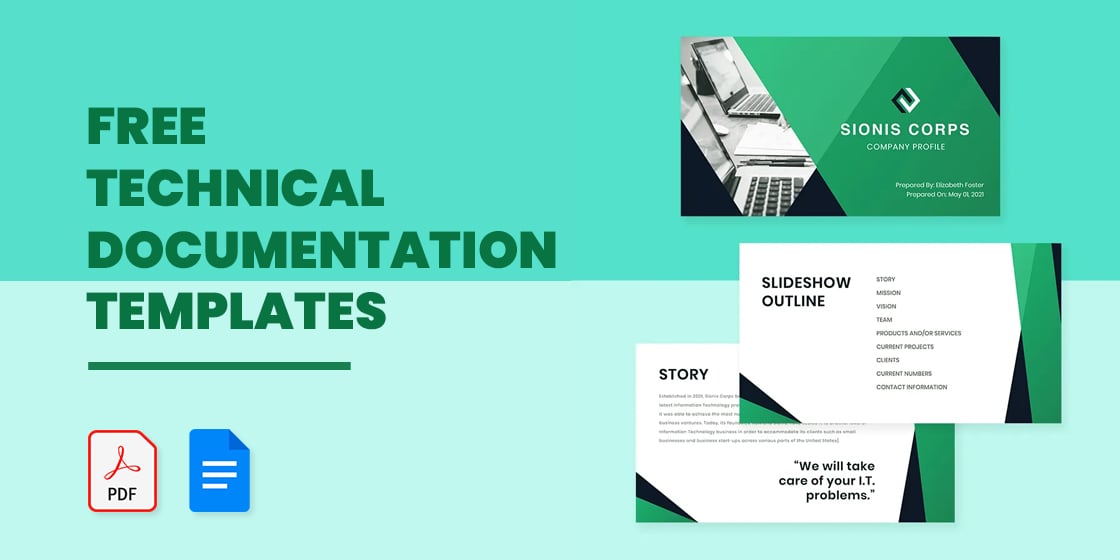
The Technical Documentation refers to the documents that interpret the use, functionality, creation of the structure of the product and services. Think of an electronic product such as “a how-to guide for” your users, new hires, administrators, and anyone else who wants to know how the product works. The process sounds pretty straightforward, but the result hardly is somewhat like that. Technical documentation is the guide for anyone who wants to know detailed info about the product. You can incorporate technical documents for a machine manual, standard, information technology (IT) document database, requirements list, programming guide, business standard, and much more.

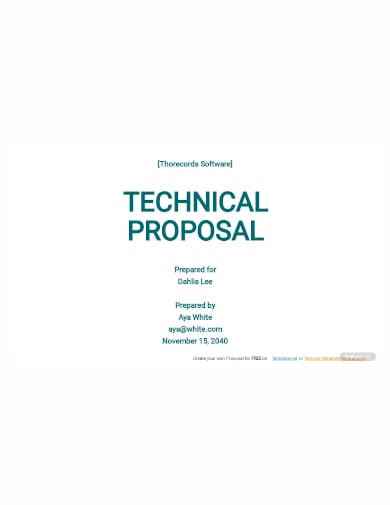
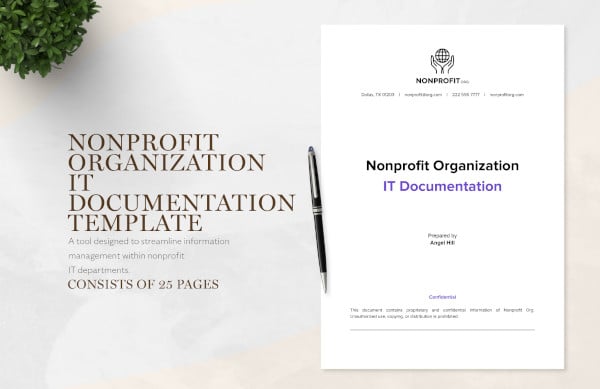
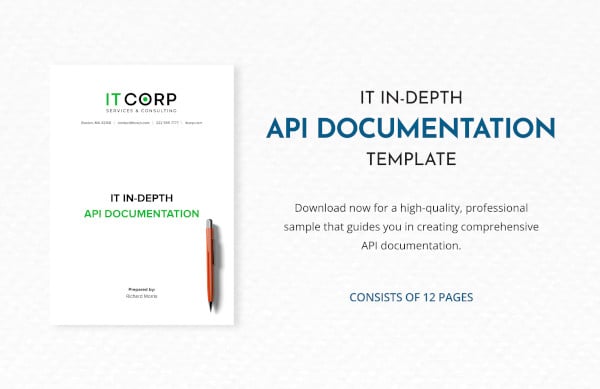
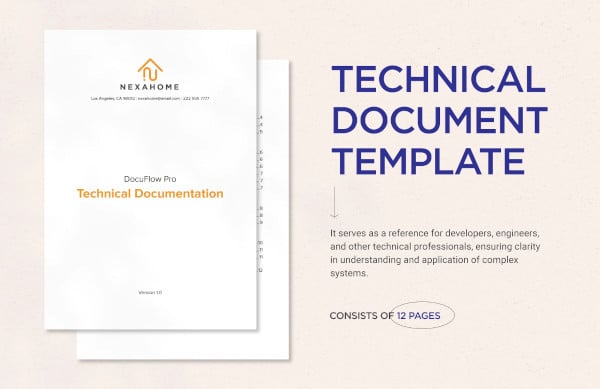
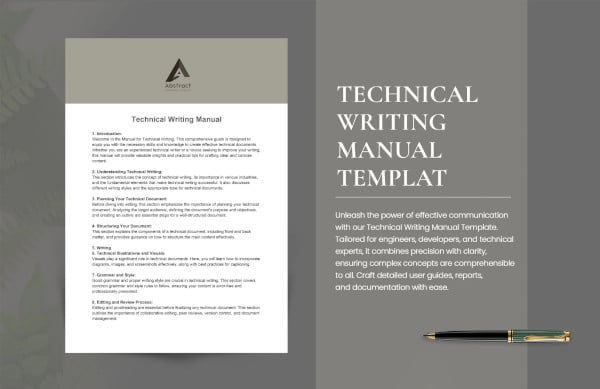
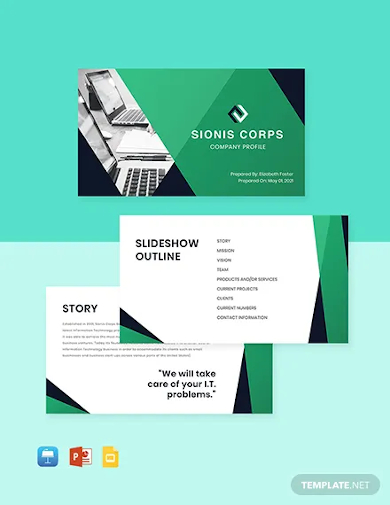
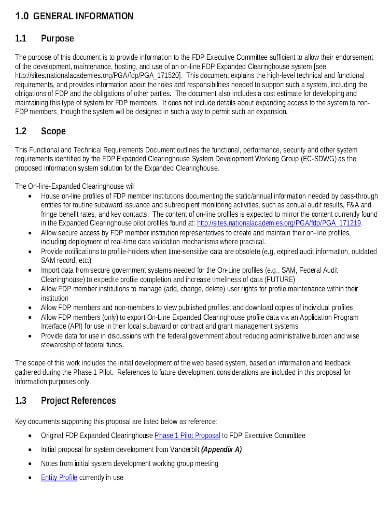
thefdp.org
File Format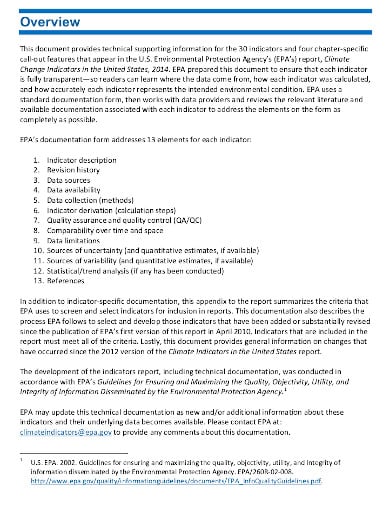
epa.gov
File Format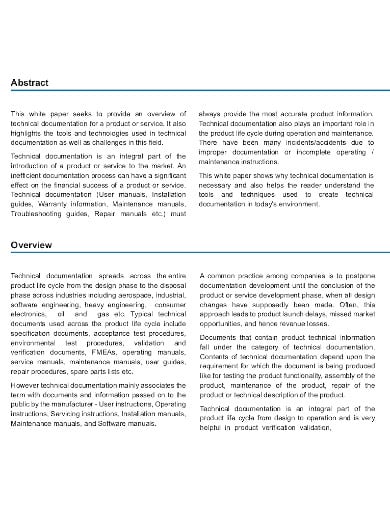
quest-global.com
File Format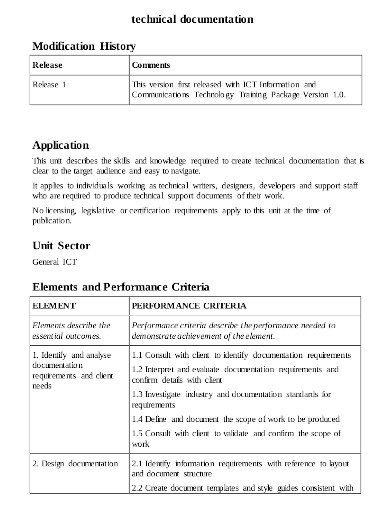
training.gov.au
File Format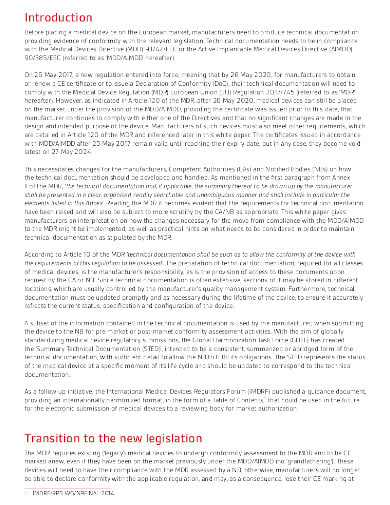
bsigroup.com
File Format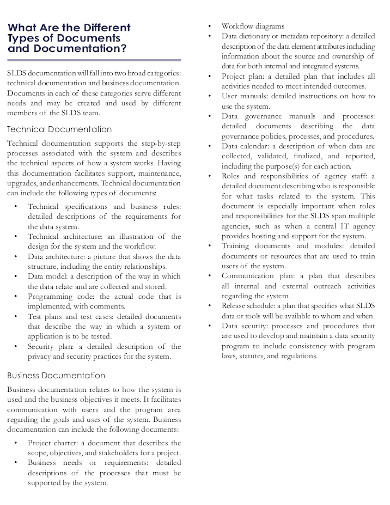
nces.ed.gov
File Format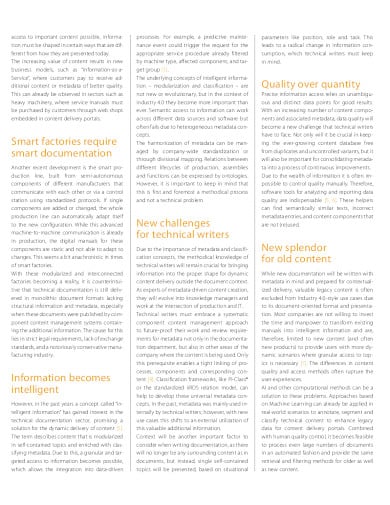
semanticscholar.org
File Format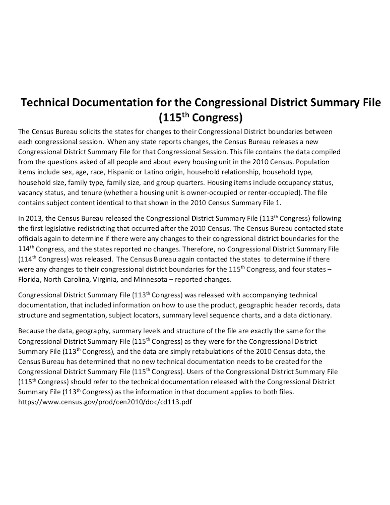
census.gov
File Format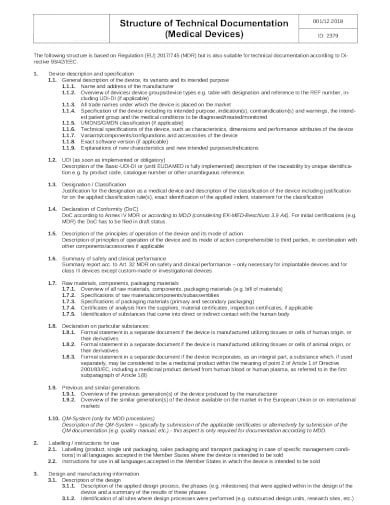
mdc-ce.de
File Format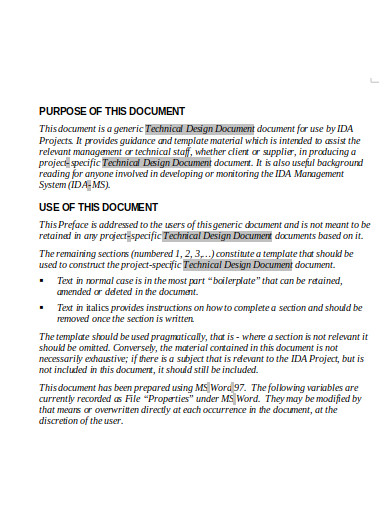
fer.unizg.hr
File Format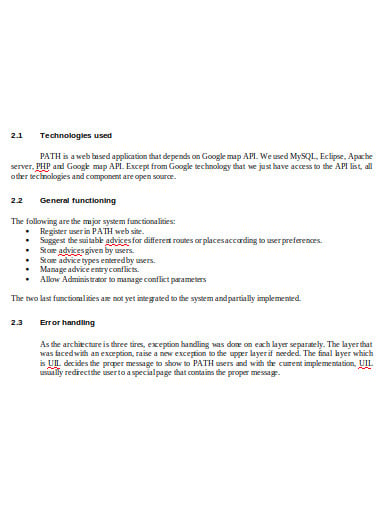
ec.europa.eu
File Format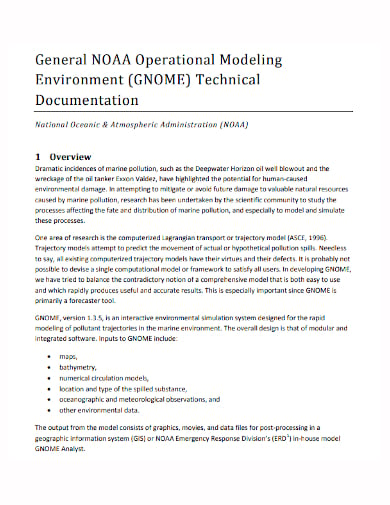
restoration.noaa.gov
File Format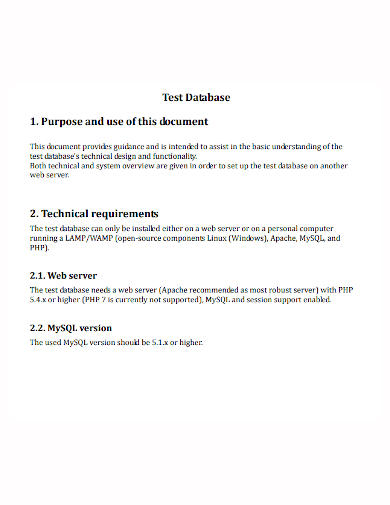
ec.europa.eu
File Format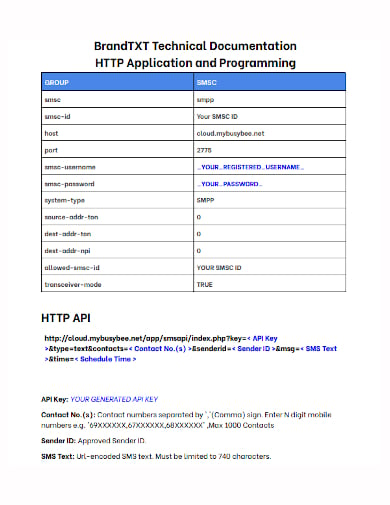
mybusybee.net
File FormatThe Technical Documentation can quickly go from the use of the product if you’re unfamiliar with that to the unedited transcript of everything the developer tells you about the application of the API. Both will get you using the product away but in different ways. One will simply tell you the use of the product, the other will make you go cross-eyed.
Every plan starts with research. It might sound obvious, but knowing the purpose and scope of your technical documentation will save you a ton of time and energy. If you’re not the subject matter expert, this might mean doing some internal interviews and building a relationship with the technical team to get a stronger grasp on the material. And this information goes on and on what’s called a documentation template.
The goal of the technical documentation is to be usable. And the huge part of that is making it structurally logical and easier to navigate. Before, you even get into the creation of the content. You have to think that the content is going to be presented. This means thinking about both the page design, as well as the navigational structure of the document. Here is the use of the free templates and the schemes for the consistent on-page design.
With the website documentation and structure in place, it’s time to get serious about creating the technical documents. Like any other written project, the easiest way to create the technical documentation sample plan is to follow a few steps rather than try to dive right in and start writing. The easiest way to make sure is that the thing you’re creating is useful, valuable, and clear.
Once your documentation is put together and live, it is time that you get real feedback for that. But this step gets skipped during the development of the technical documentation. But as we have said multiple times in this guide already, the technical documentation is all about the user. If that does not work for them, then it is considered a complete failure.
At this point, you’re ready to push forward the documentation out in the world. But if you think that your job is finished then think of that again. Technical documentation is the living content that needs to be reviewed and bought up to date with the new product releases and updates.
The Technical Documentation is not about capturing the information. It is all about the presentation that is easy to read, usable, and helpful for the audience. The documentation is written by the technical expert who knows what they are talking about and are trained to translate the complicated product knowledge into content that is more easily understood by the end-users. You need the technical writing team to prepare the technical documentation more simply. You can also see more on Technical Templates.
The Technical Documentation assists the audiences to use the product, understand the product, and get unstuck. Whether the audiences are the end-users, administrators, colleagues, or technicians that don’t matter a lot. The thing that matters is that it is clear, searchable, and helpful for them. The simplest way is that you write the things that you know and think will help the users get the answers to their queries. You can also see more on Portfolio Website Templates.
Good Technical Documentation empowers the users, not frustrates them. It is an integral part of not just the client support, but brand building and their trust. Users seek it when they are in the utmost need of this type of technical support. And when they do not find it there for them, they will switch to alternatives. A clear understanding of the information by the end-users is important here to keep them stick to your services. You can also see more on Online Templates.
The Technical Documentation is the thing like the user guide, release note, online help system, training programs, standard operating procedures, etc that helps the users use the products. It is anything that is product-focused and is used to market your company like videos, presentations, technical landing pages, etc. It could be technical and functional specifications software development guides that will help the developers do their job.